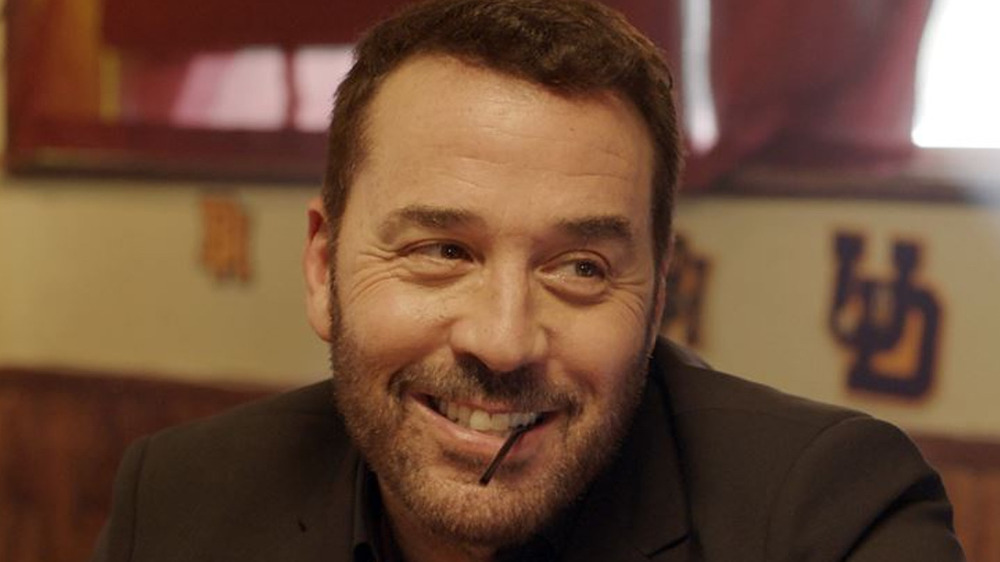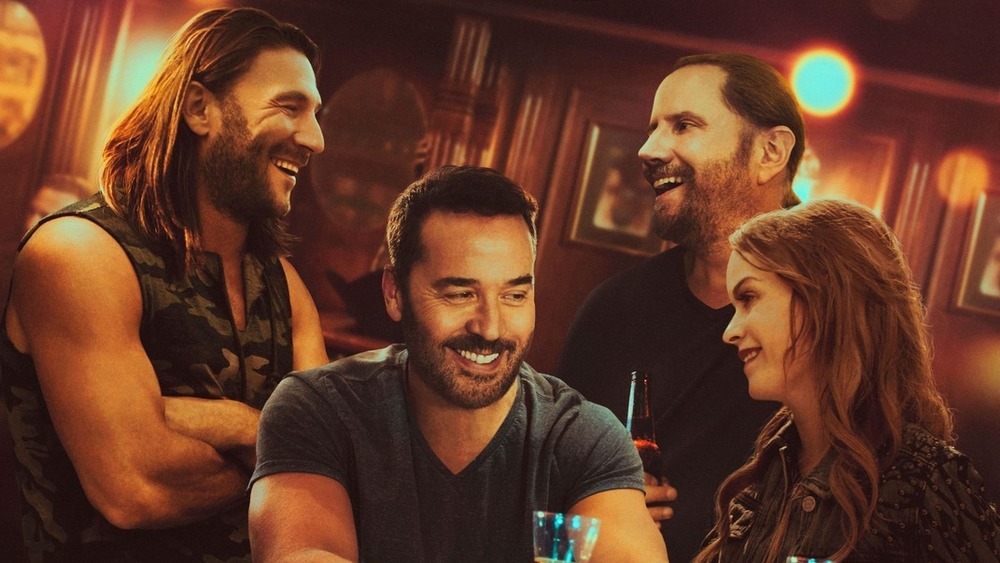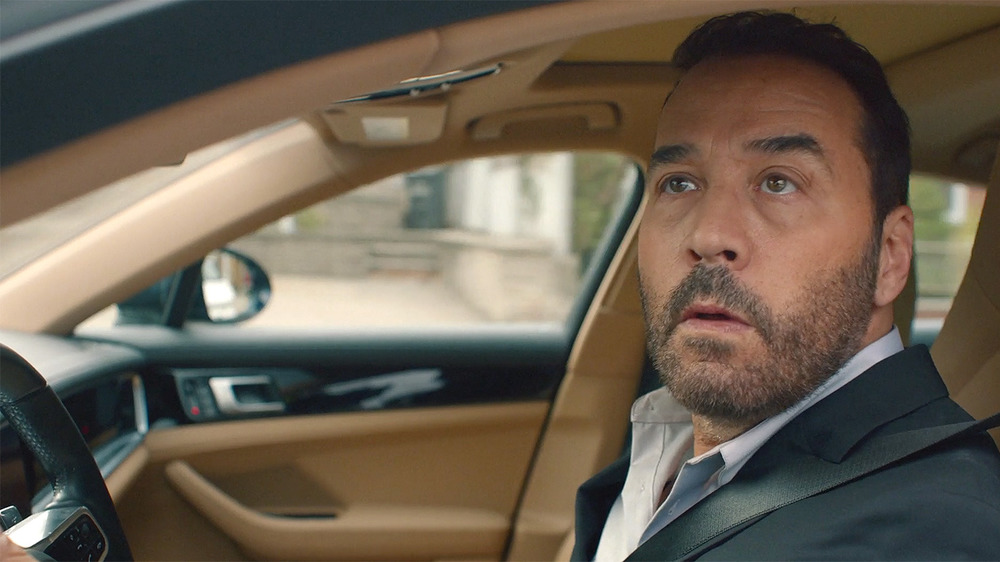Last Call Review: Closing Time
For a movie as juvenile and hollow as Last Call appears from its promotional material, it possesses a strange amount of heart. The film stars Jeremy Piven as Seamus "Mick" McDougal, a successful real estate developer who made it out of his blue-collar neighborhood in Philadelphia only to be pulled right back to the homestead when his mother passes away and the pub his father owns is floundering.
It's a movie that sees itself as a comedy first, indulging far too much in some truly regressive "bro" humor. But beneath that clumsy façade and its lower-budget aesthetic, it's clear the filmmakers wanted to craft a sincere ode to the old neighborhood bars of their past, acknowledging and exalting them as the formative foundation of so many lives.
It's just a shame that, in doing so, they could not find a better balance between accurately depicting the kind of cringeworthy jokes you're likely to constantly hear in such establishments with pursuing a more earnest exploration of gentrification and the dramatic difficulties inherent in returning home a changed man.
The result is a movie hobbled by tonal whiplash. It is a film that draws the viewer in with moments of genuine pathos before gobsmacking them with repetitive gags of questionable comedic value.
Funny, but not funny ha-ha
When we meet Mick (Piven), director Paoli Pilladi introduces the dichotomy between his upbringing and his exodus from the neighborhood by contrasting sweet moments of him as a youth (like getting teased by his degenerate friends) with his loftier present life (getting a back massage from SNL vet Cheri Oteri.) There's a twinkle of sweetness to the childhood flashback that suggests Last Call is going to be close in tone to, say, something like Kevin Smith's Jersey Girl, a John Hughesian dramedy that is heartfelt first and only relies on humor for relief.
But within ten minutes of Mick arriving back at the Bucket, the pub his father Laurence (Jack McGee) owns and lives in, that illusion is shattered rather quickly.
Bruce Dern is there as Coach, a mainstay at the bar with a tab the length of a giraffe's neck. So are Mick's childhood friends Whitey (Jamie Kennedy wearing an omnipresent and outdated bluetooth headset) and Paddy (Chris Kerson, splitting the difference between young Billy Crystal and old Jon Gries). His brother Laurence "Dougal" McDougal (Zach McGowen) arrives late to the wake, in handcuffs, after waking up drunk in his car.
After a tense scene between Mick and Dougal arguing over the responsible brother abandoning his clan and the ne'er-do-well sibling deflecting his obvious failings, Pilladi cuts outside the Bucket to a cop car covered in Post-It notes with vulgar drawings on them and a small group of children scurrying away. This juxtaposition is the film in a nutshell.
When the movie takes the time to unpack Mick's baggage about leaving the neighborhood and his frustrations with his family, it functions surprisingly well. There's a running subplot about a rival real estate developer, Mick's boss and what appears to be a deep corruption scheme ravaging the neighborhood. Within that framework, there's plenty of room to wring some drama from Mick's complicity and how he became the kind of person his former friends despise.
Instead of digging into that in a meaningful way, however, the film repeatedly gets bogged down by diversions surrounding Dougal, Whitey and Paddy's childish activities, principally among them an ongoing "sex bet" whose ultimate victor will receive the greatest possible MacGuffin, a VHS tape recording of a little league baseball game the trio has been obsessively debating their entire adult lives.
While Kennedy avails himself quite well through the film's man-child hijinks, offering a supporting character with the texture and internal consistency necessary to make his goofiness really sing, everyone else just doesn't fit. Sure, the material itself is laughably unfunny, but actors like Kerson and McGowen just possess too much genuine dramatic energy to make the comedy feel natural, making every extended bit or jokey aside feel particularly egregious and diversionary. Dern and Raging Bull's Cathy Moriarty are pleasant to see anytime, but they aren't given much to do either.
Comedic relief is supposed to foster laughs, not eye rolls or yawns.
Wasted potential
But the film's biggest tragedy is how sharply it encapsulates the tragedy of Jeremy Piven's acting career.
On the surface, Mick is the perfect role to capitalize on Piven's strengths as a performer. He has natural comedic ability, his own unique kind of charisma, and the range to deliver serious drama within his signature persona. Few other guys are better suited to portray the inner conflict of a hooligan gone straight reconnecting with his roots.
But since Entourage, Piven has received no roles commensurate to the absolute meal he made out of Ari Gold. That show could have been a tipping point for Piven to move into more meaty leading man roles or, at the very least, a better string of interesting supporting turns. Instead, he only ends up in half baked, small release films like this one, movies that fail to live up to their own potential in precisely the way he has. To watch him play a guy who did get out and make something of himself while seeing how trapped he is in this cycle is somehow more painful than the actual conflict onscreen.
There are bits of the subplot between Mick and his childhood crush/current love interest Ali (Taryn Manning) that feel genuine and engaging, not unlike some of the better romances in even the silliest Adam Sandler comedies. Their work together, while housed in an otherwise middling picture, is a cruel reminder of the kind of movies he could be making but never seems to get to.
Perhaps this is a stretch, but there are few things someone like, say, Robert Downey Jr. does in any given Marvel movie that Piven couldn't also sleepwalk through. How has this dude not played a smarmy villain for Big Disney yet?
Maybe on some level he's more drawn to this kind of material and, despite the smaller cultural footprint, is actually happy making movies like Last Call. Perhaps the film, originally titled Crabs in a Bucket, just meant more to him on the page, or his agent has been explicitly directed not to campaign for higher-hanging fruit in Piven's name.
It's fun to imagine an alternate recent Hollywood history where the man has branched out into better, more fascinating roles, or at least simpler turns that make more money. But maybe making deeply unfunny movies written as love letters to bars is more his wheelhouse. If so, expect to see two to three more Last Calls every year until he retires.


